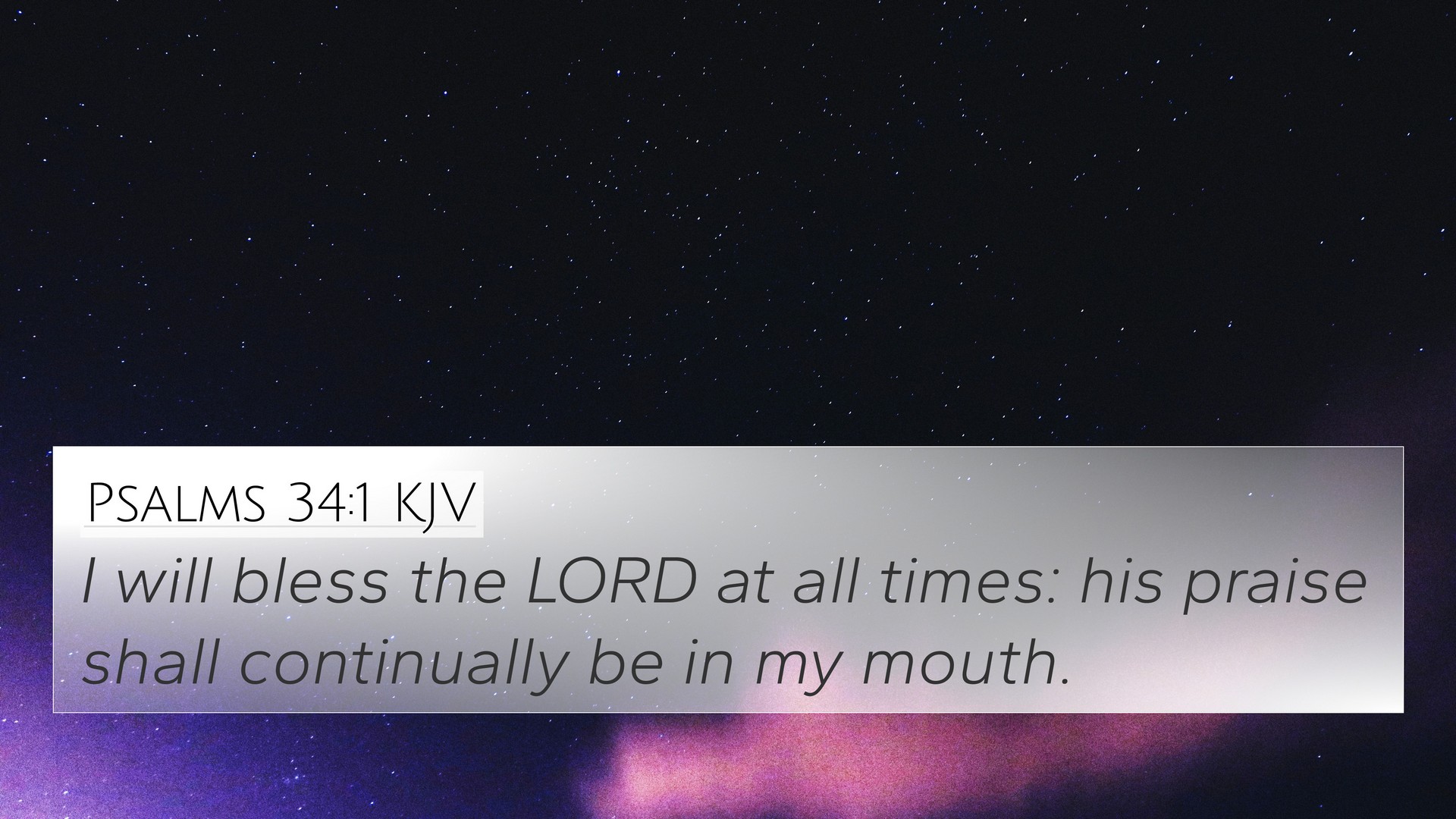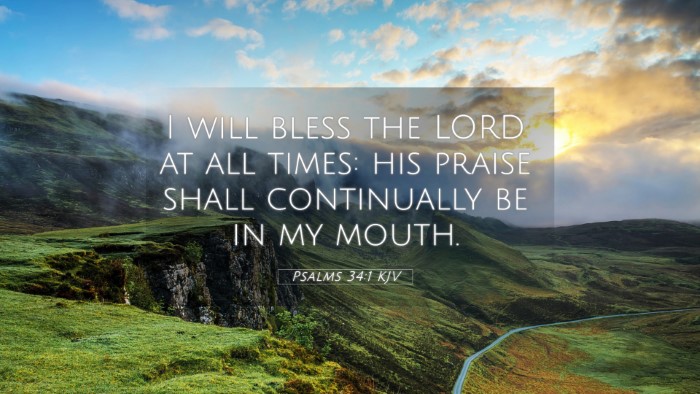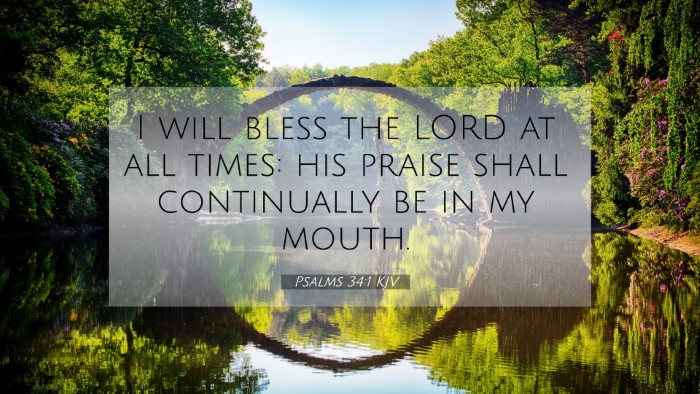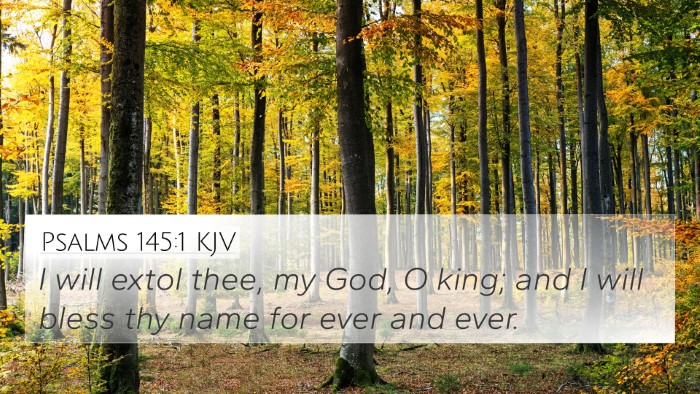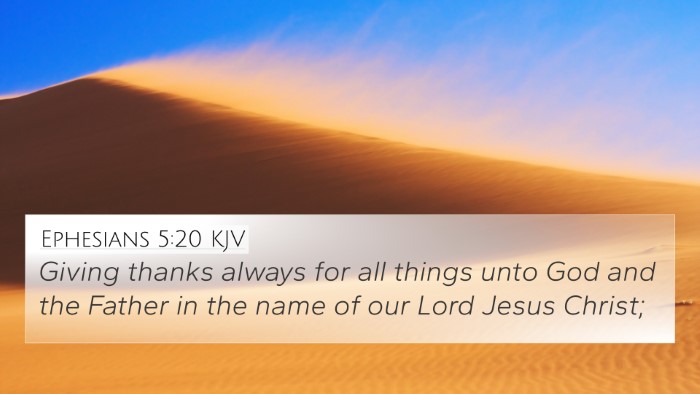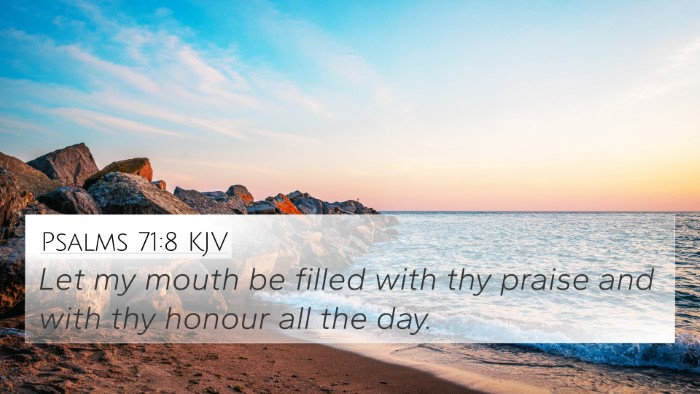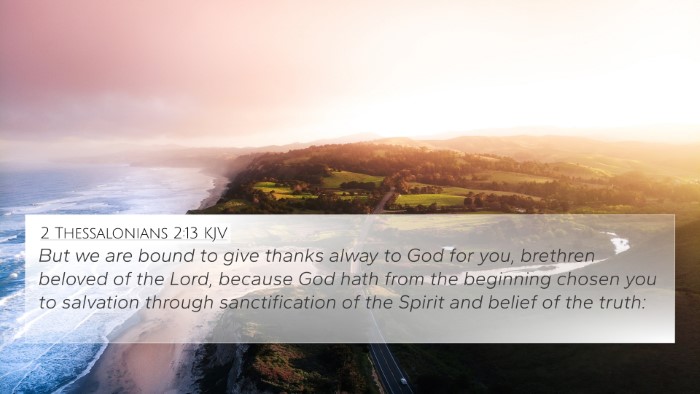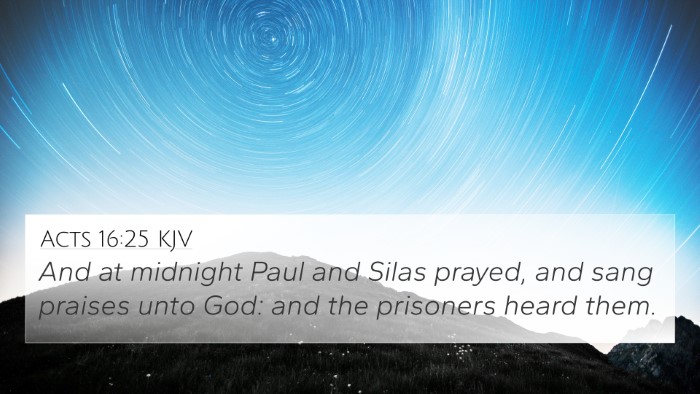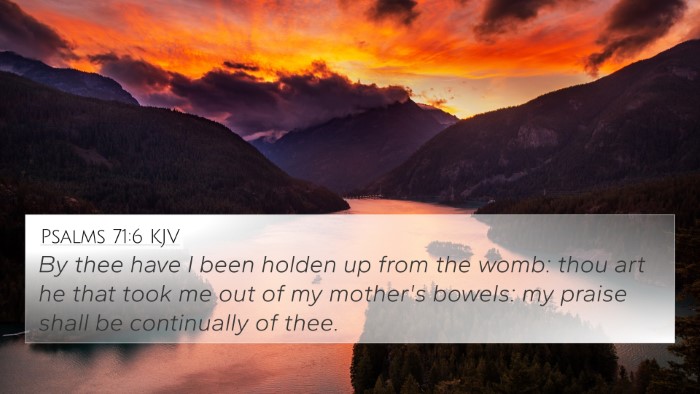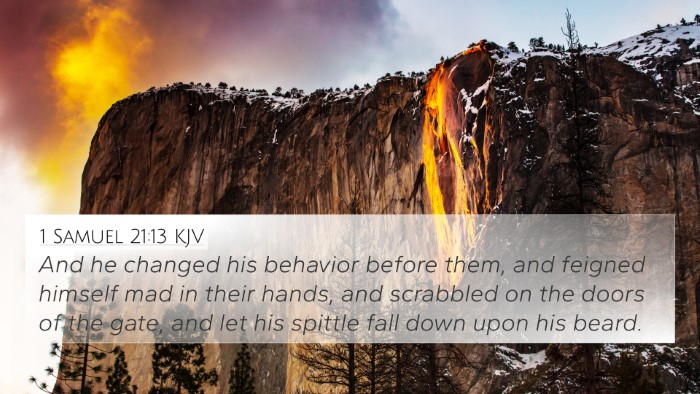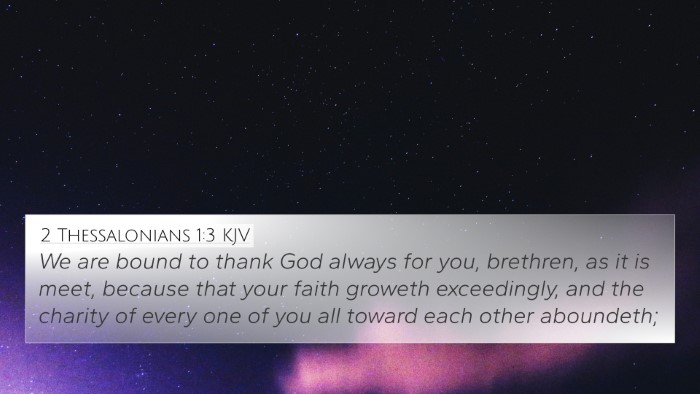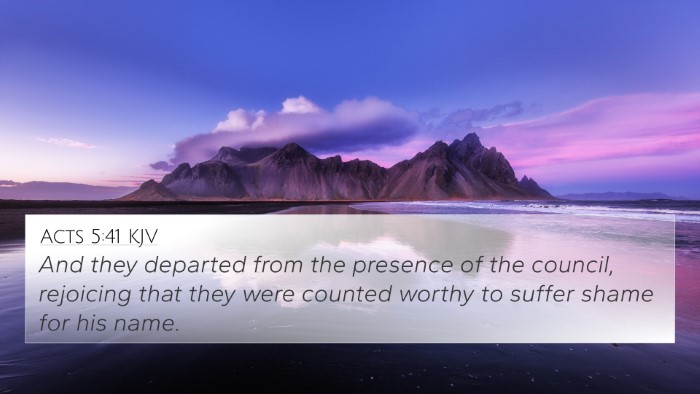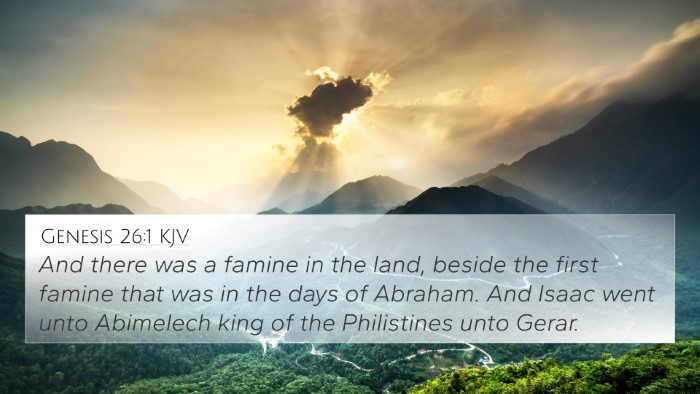Psalms 34:1 states, "I will bless the LORD at all times: his praise shall continually be in my mouth." This verse serves as a profound declaration of the psalmist's commitment to worship and gratitude towards God, capturing the essence of a life dedicated to praising the Creator.
Meaning and Interpretation
This verse indicates a deep and unwavering devotion to God's glory. The phrase "I will bless the LORD" signifies an intentional decision to recognize and proclaim God’s goodness regardless of circumstances. The psalmist emphasizes that this praise is not limited to specific times of joy but is a continuous act, advocated by Matthew Henry as the believer's duty during both good and bad times.
Insights from Commentaries
- Matthew Henry: He outlines that praising God should not be confined to moments of blessing but should be a habitual expression of our faith. The constant praise reflects a vibrant relationship with God.
- Albert Barnes: Suggests that blessing the Lord involves both verbal proclamation and lifestyle choices that honor Him. He connects this verse to the concept of being continuously aware of God's providence and grace.
- Adam Clarke: He emphasizes the proactive nature of blessing God, illustrating it as a spiritual task that should resonate in our hearts and minds, signifying a life of thankfulness.
Practical Applications
Applying the insights from Psalms 34:1 encourages believers to weave praise through every aspect of their lives. This verse invites examination of moments spent in contemplation, prayer, and the expression of gratitude, encouraging believers to develop a consistent practice of lifting their voices in worship.
Cross-References
Psalms 34:1 is interconnected with various other scriptures that enhance its meaning:
- Psalms 113:1-3: Calls for perpetual praise among God's people.
- 1 Thessalonians 5:16-18: Encouragement to give thanks in all circumstances, complementing the idea of constant praise.
- Philippians 4:4: "Rejoice in the Lord always," correlating with the theme of unwavering joy and praise.
- Psalms 145:1-2: A commitment to extolling God daily and forever.
- Hebrews 13:15: Calls for the sacrifice of praise, likening praise to an act of worship.
- Psalms 100:4: Encourages entering God's presence with thankfulness and praise.
- Psalms 71:6: A reminder of God’s faithfulness from youth, prompting continued praise into old age.
- Matthew 6:33: Prioritizing the Kingdom of God and His righteousness ties into the act of blessing God.
- Romans 12:1: The call to present one's body as a living sacrifice relates to the concept of honoring God through life.
- Psalms 119:164: Highlights the importance of praising God during the day and night in devotion.
Thematic Connections
This verse also gives rise to broader themes within the scripture, establishing connections between various teachings and experiences that reinforce the critical role of gratitude in the believer's life. It emphasizes the relationship between praise and worship in both the Old and New Testaments, facilitating a greater understanding of God's character and His worthiness of honor and praise.
Conclusion
Psalms 34:1 serves as a powerful reminder of a believer's calling to bless and praise the Lord continuously. The exploration of this verse through public domain commentaries reveals its depth and significance, urging worshippers to reflect this principle in their daily lives. Whether through personal worship, congregational gatherings, or quiet moments of reflection, the act of praising God remains central to a life of faith.
Further Study Suggestions
- Consider using a bible concordance to find additional verses related to praise and worship.
- Utilize tools for Bible cross-referencing to expand your study on related themes in scripture.
- Engage in cross-reference Bible study methods to deepen your understanding of interconnected verses.
- Explore Bible reference resources to facilitate a comprehensive study of Psalms 34:1.
